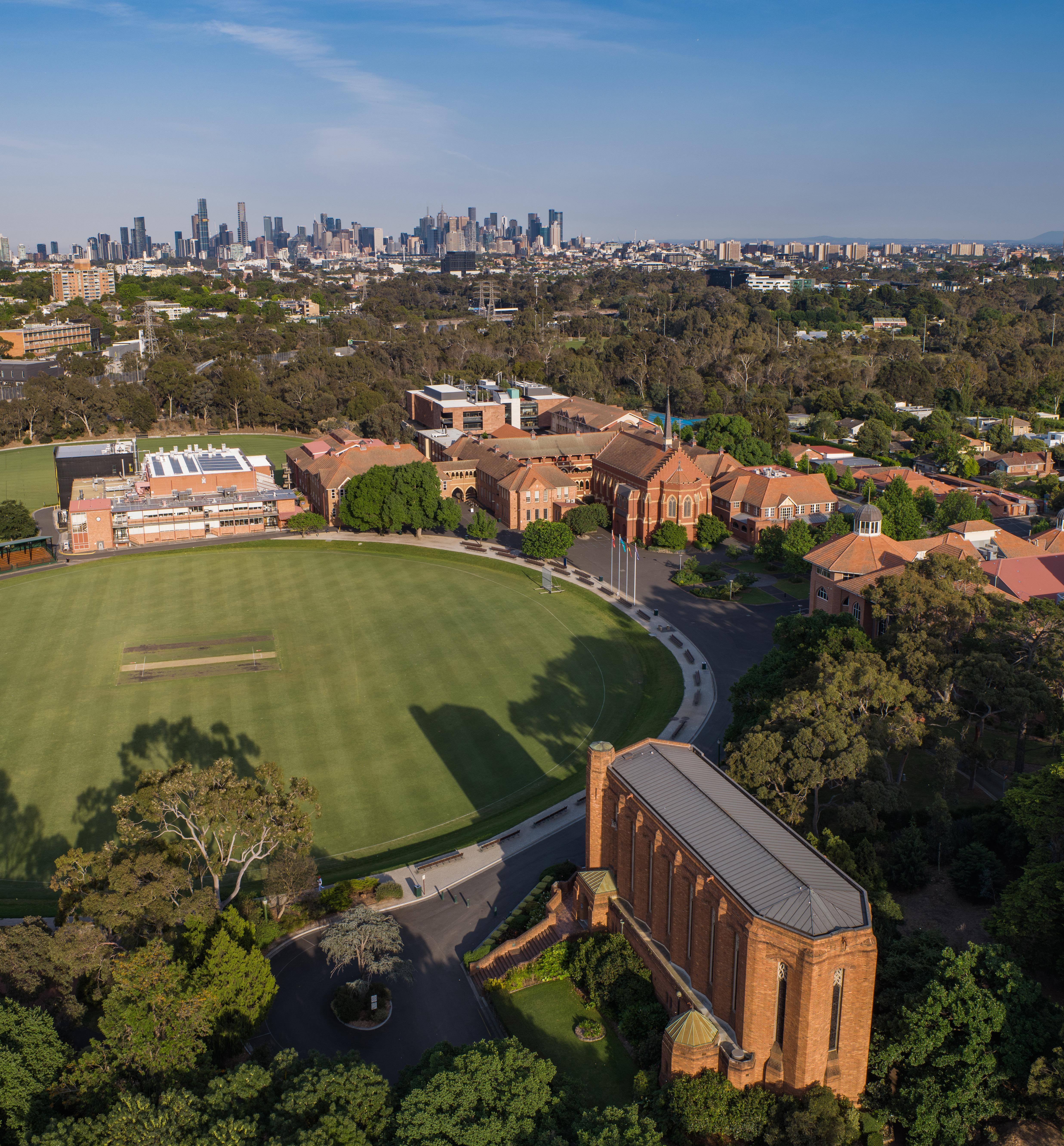

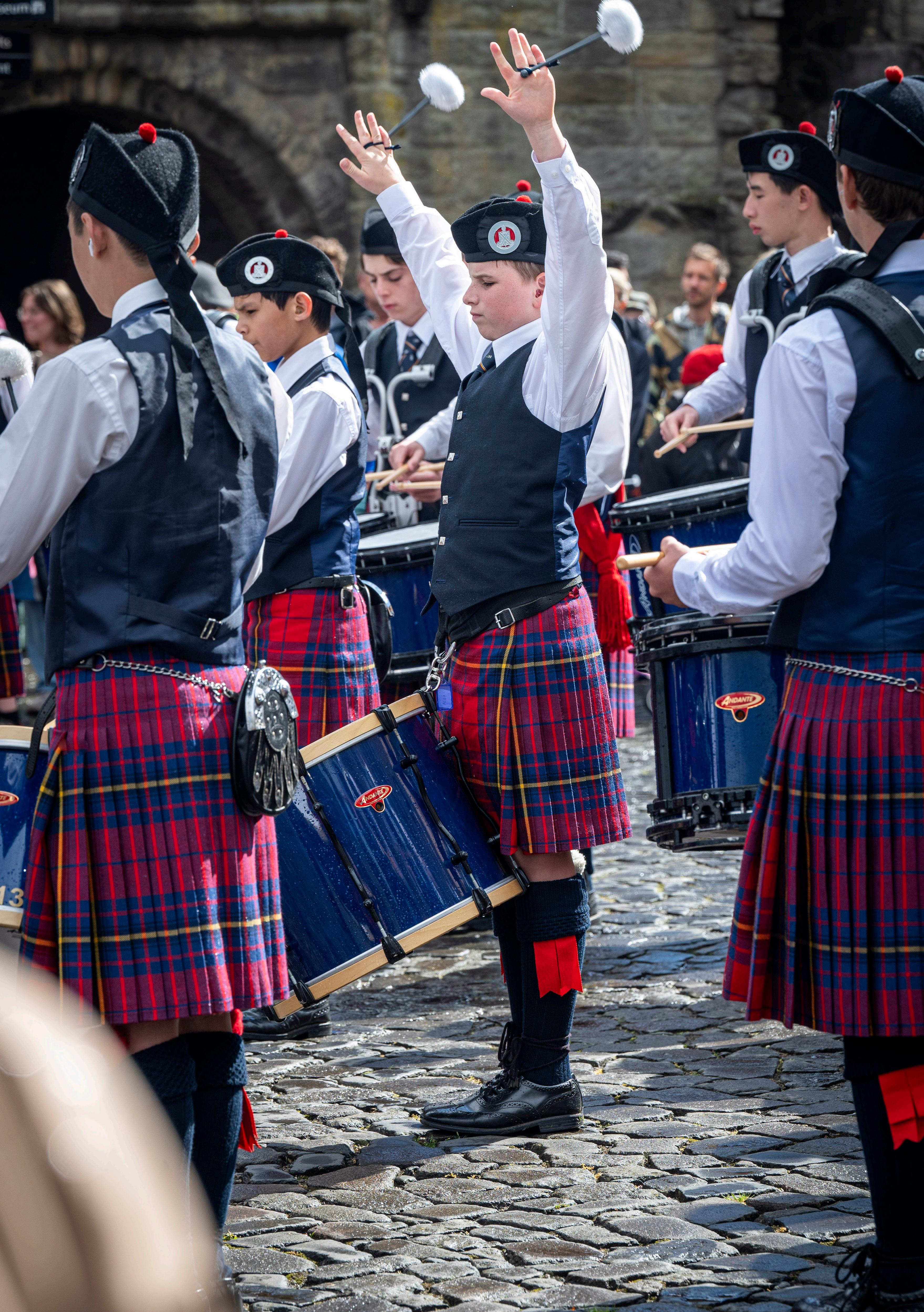




Forming good men has been our passion and purpose for 175 years. As a singlesex school for boys, we believe that good men matter, and that the world needs more good men.
In joining the Scotch Family, each boy becomes part of an inspiring story of service, contribution and scholarship. Indeed, Scotch boys become members of the Scotch College Family, from their first day of school and for the rest of their lives.
As a Christian school, we believe each boy is created uniquely for a purpose.
Importantly, this belief shapes each boy’s learning journey where the breadth of learning experiences and depth of care ensure each boy is known and forms a deep sense of belonging.
We are proud of our sporting teams, musicians, mathematicians, linguists and thespians. Whether in fencing or football, chemistry or cadets, Scotch offers many opportunities for our boys to flourish. Whether playing in the Pipes and Drums or orchestra, touring with the cricket team or even visiting NASA, each boy is encouraged to aim high in every endeavour, while keeping his feet firmly planted on the ground.
Having moved to our current site in 1926, we are blessed to learn and teach on 27 pristine hectares. Our Prep to Year 12 campus in Hawthorn sits directly on the winding Yarra River, where every day our rowers build the strengths and habits that will serve them well for life.
Similarly, our Outdoor Education properties in Cowes, Healesville and Mallacoota provide rich experiences for our boys to build lifelong friendships and skills. Surrounded by spectacular bush and ocean settings, these places educate the heart as much as the mind and are critically important, compulsory learning experiences within a Scotch education. They provide times of great growth and challenge.
Guided by the principles of the Scottish Enlightenment, Scotch is a place where personal responsibility and a service mindset are cultivated. The Scotch Family is committed to forming enlightened, good men who will progress society and make our world a better place.
Dr Scott Marsh Principal
Scotch is dedicated to forming enlightened learners of good character, committed to shaping a better future.
We believe in the inherent value and dignity of every person. We encourage each boy to listen to, understand and appreciate the needs and views of others and to forge lasting relationships regardless of religious, cultural, and social background.
We believe that every person is responsible for their life, actions, and decisions. We encourage each boy to make the most of every opportunity and to use their gifts and talents in the service of others.
We believe we are part of something bigger than ourselves. We encourage each boy, through our Christian traditions and the example of those who have gone before us, to embrace a spirit of reverence that awakens awe and wonder.
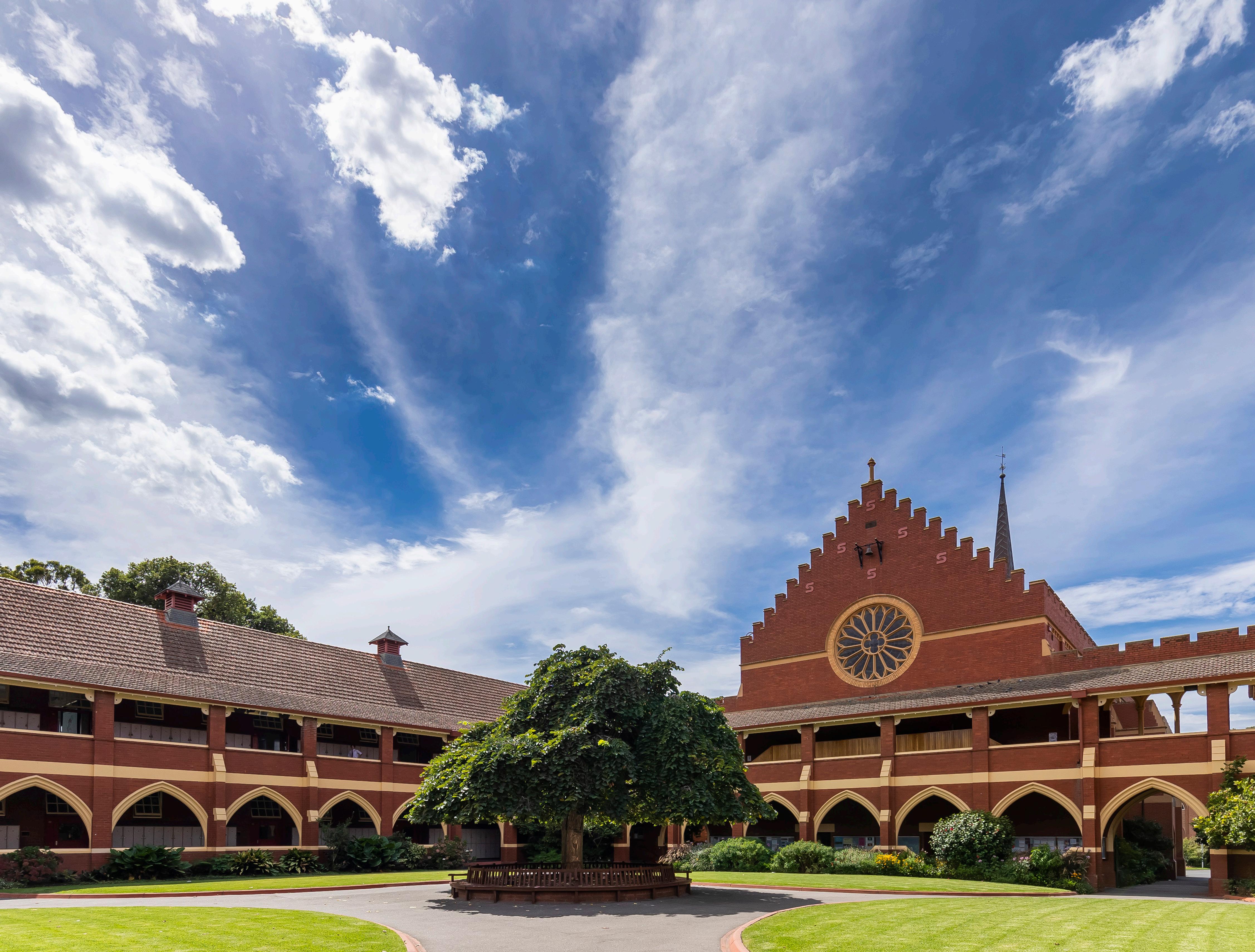
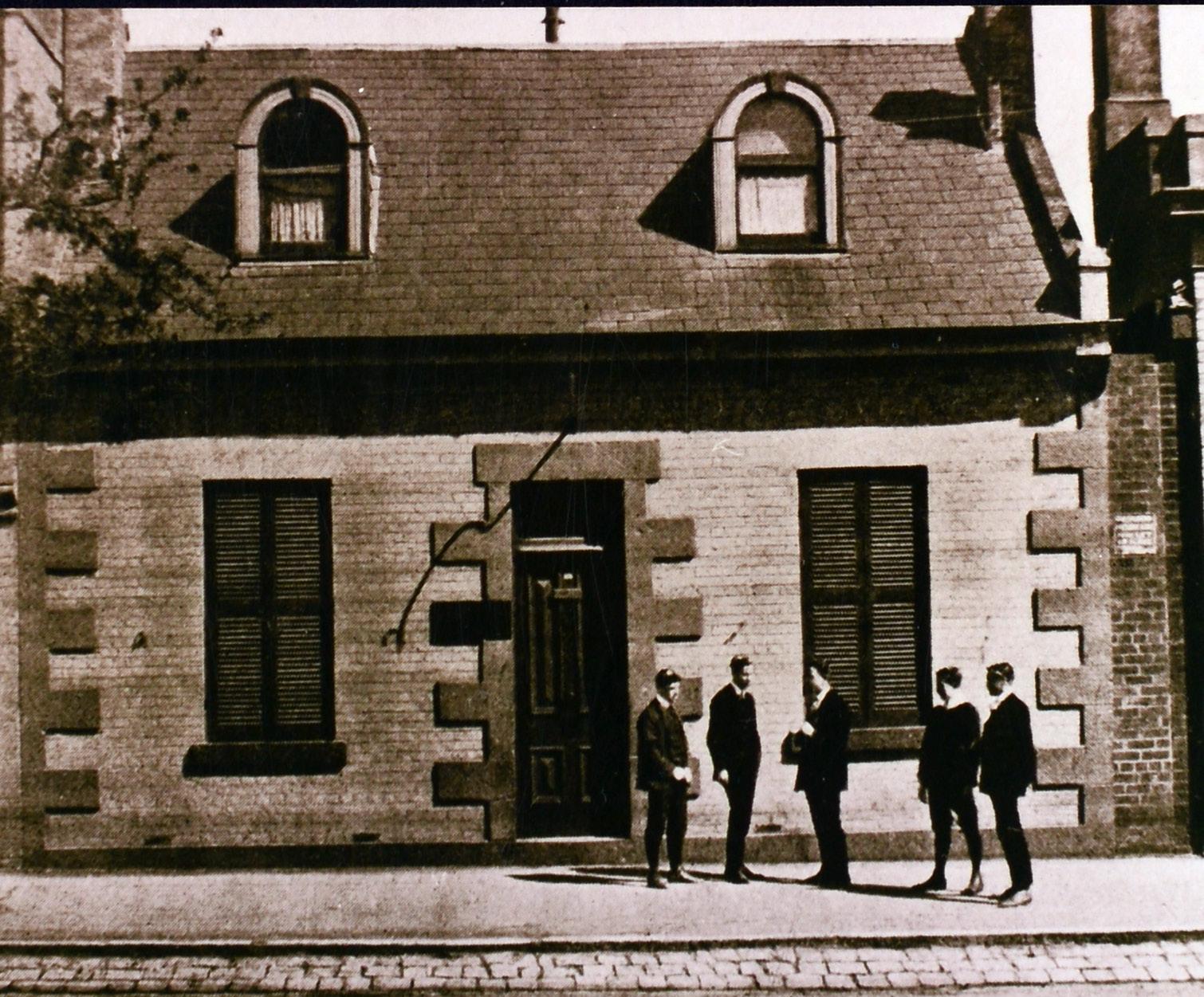
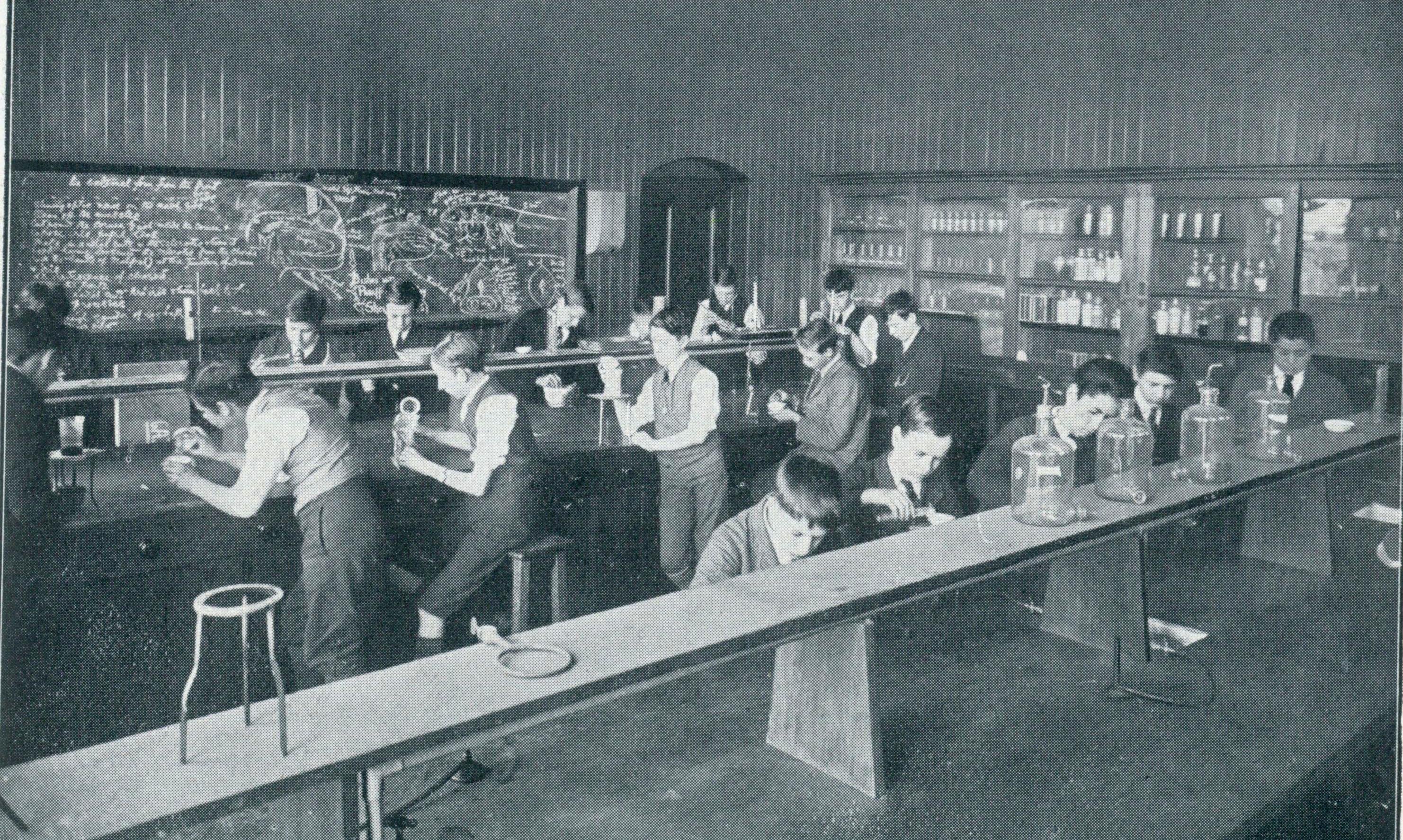
With the vision, planning and initiative of the Rev. James Forbes, Scotch opened on 6 October 1851. The school began as The Melbourne Academy in a small house at what was then 155 Spring Street, between Lonsdale and Little Lonsdale. Scotch is the oldest continuing secondary school in Victoria.
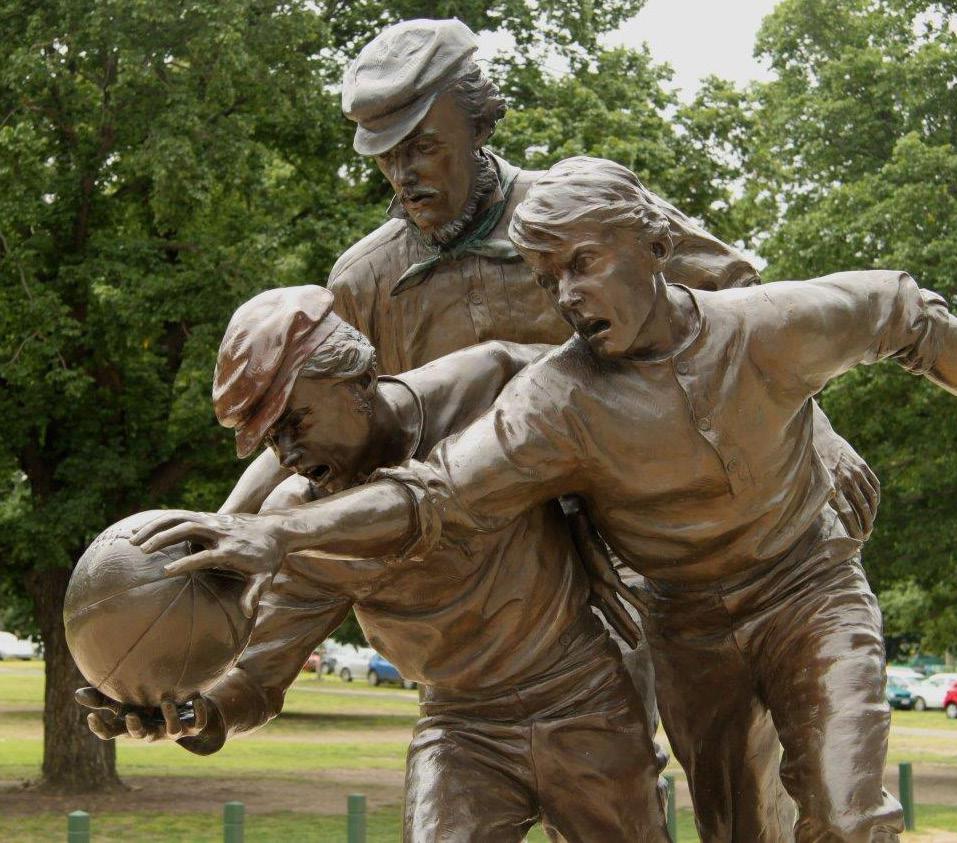
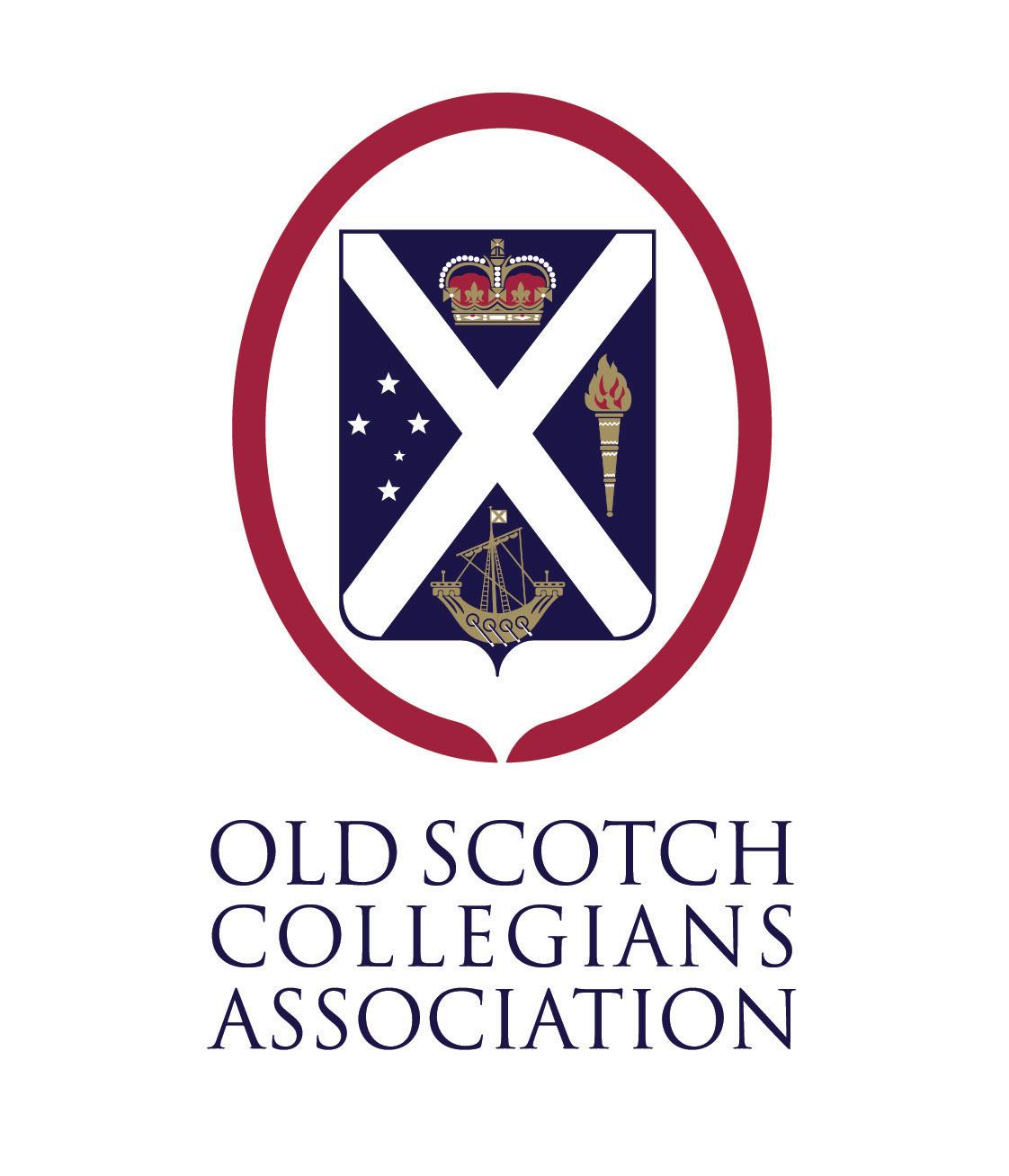
1. 155 SPRING STREET, MELBOURNE
2. STATUE COMMEORATES THE FIRST RECORDED GAME OF AUSTRALIAN FOOTBALL
3. CHEMICAL AND PHYSICAL SCIENCE LABORATORY
4. JUNIOR SCHOOL 1916
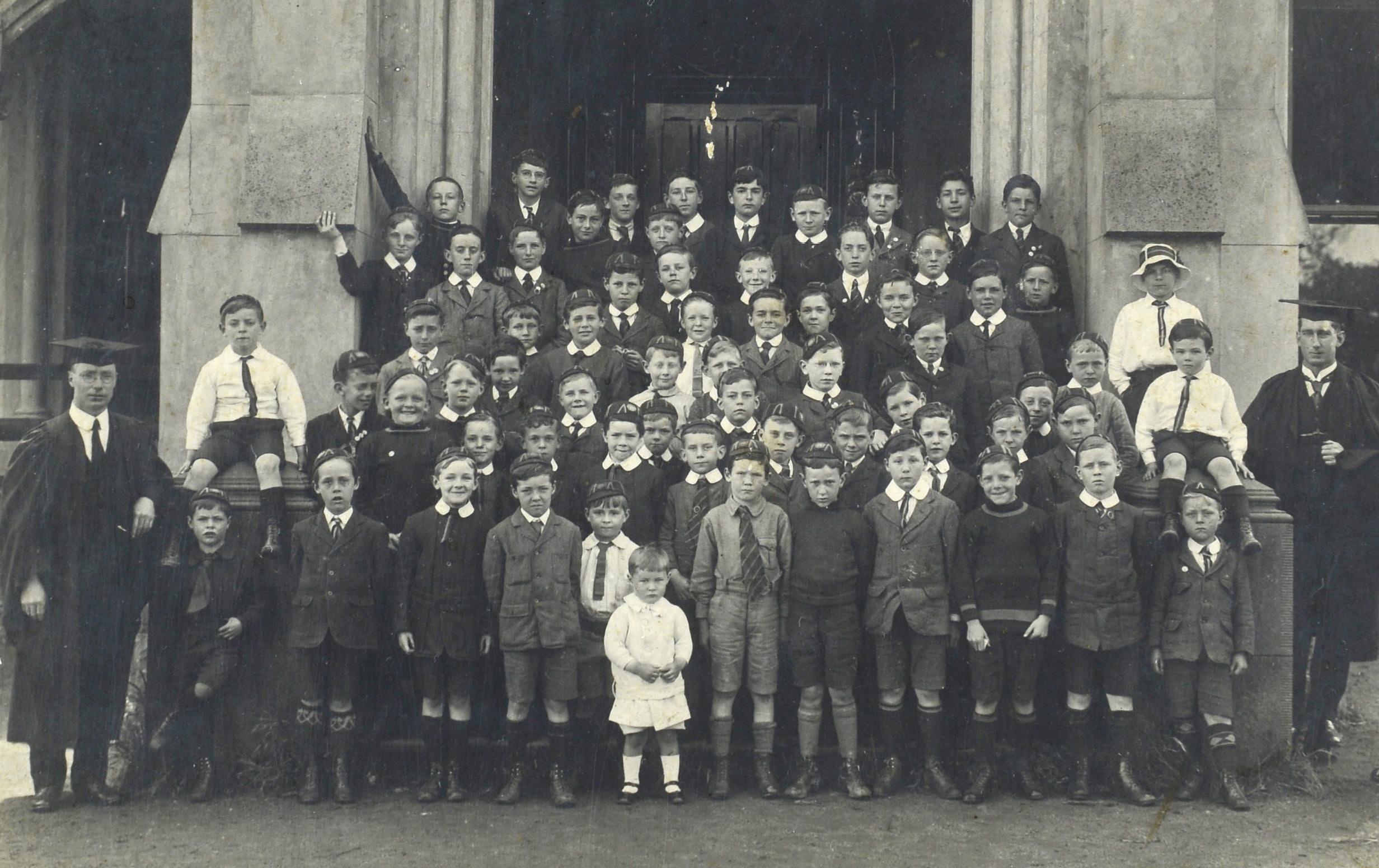
The first Victorian Public School sporting contest, a cricket match, is played between Scotch and Geelong Grammar School.
Scotch and Melbourne Grammar School play the first recorded and recognisable game of Australian Rules Football.
1873
Scotch opens Chemical and Physical laboratories, believed to be the first school in Australia to build laboratories for science.
The Old Scotch Collegians’ Association (OSCA). OSCA runs 23 clubs and hosts more than 40 events every year to ensure Old Boys remain connected to their peers and the Scotch Family.
1916
Scotch begins moving from East Melbourne to Hawthorn with the opening of the Junior School. The transition continues until all Scotch boys are at the Hawthorn campus in 1926.
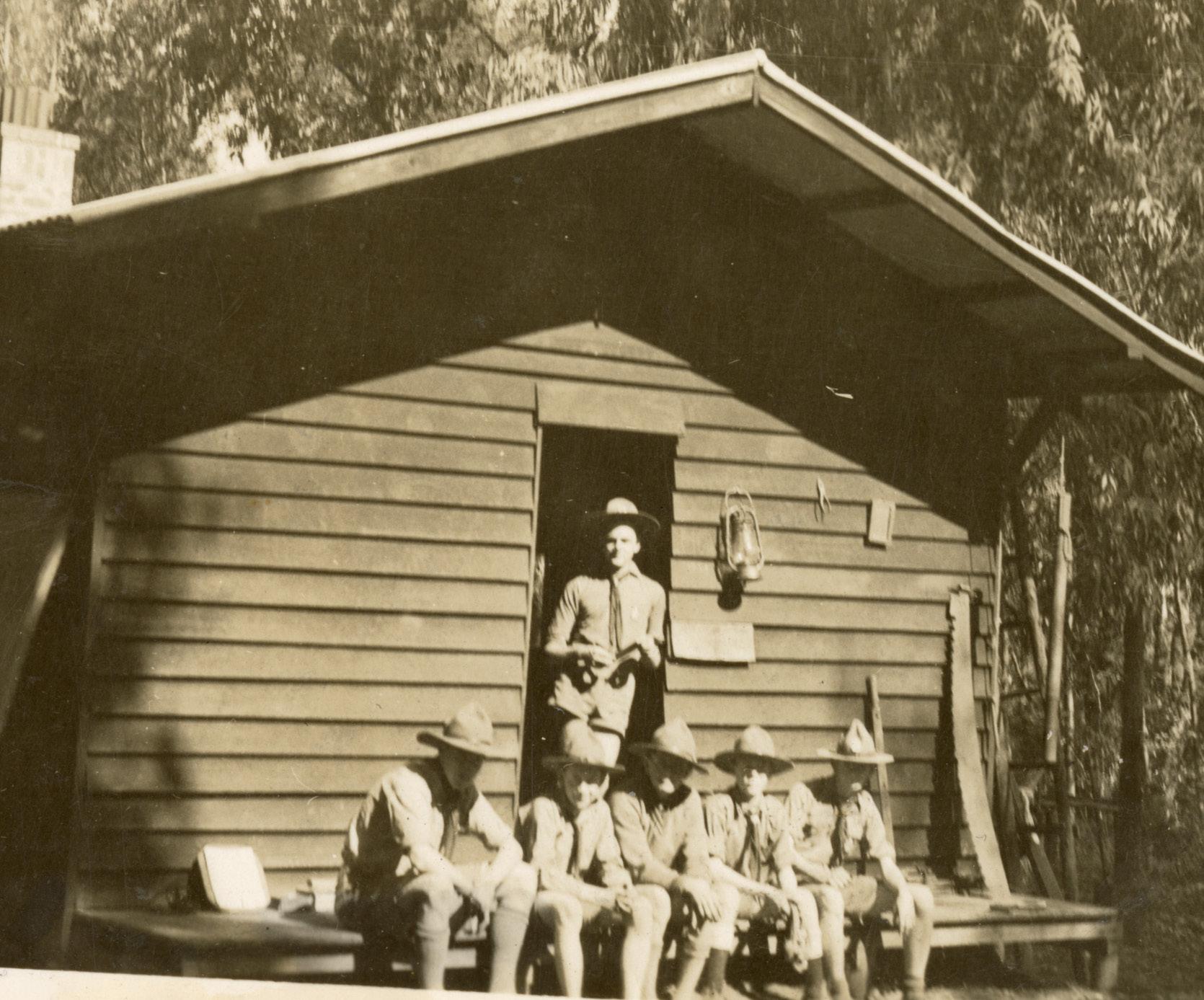
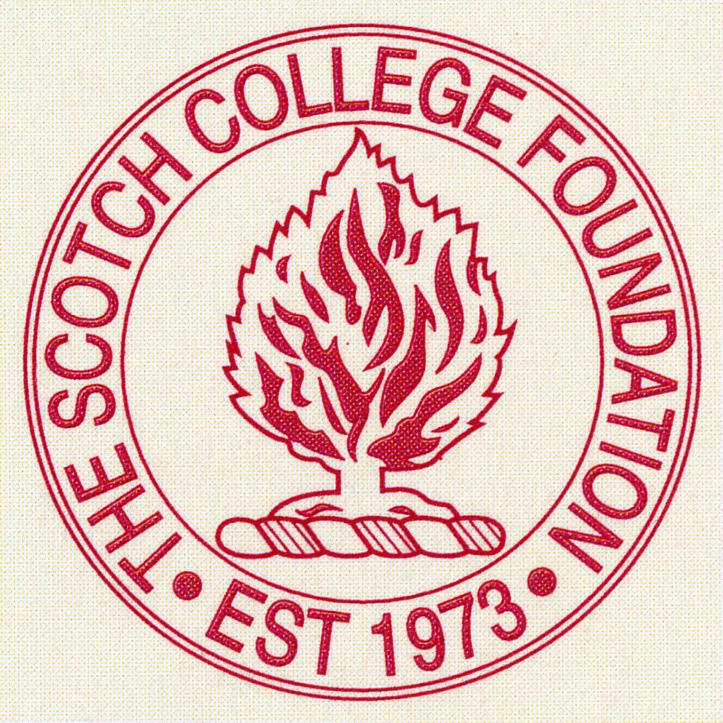
5. ELLIOT LODGE 1930
6. JAMES FORBES ACADEMY
7. SIR ZELMAN COWEN CENTRE FOR SCIENCE
8. COWES, PHILLIP ISLAND
8. MALLACOOTA
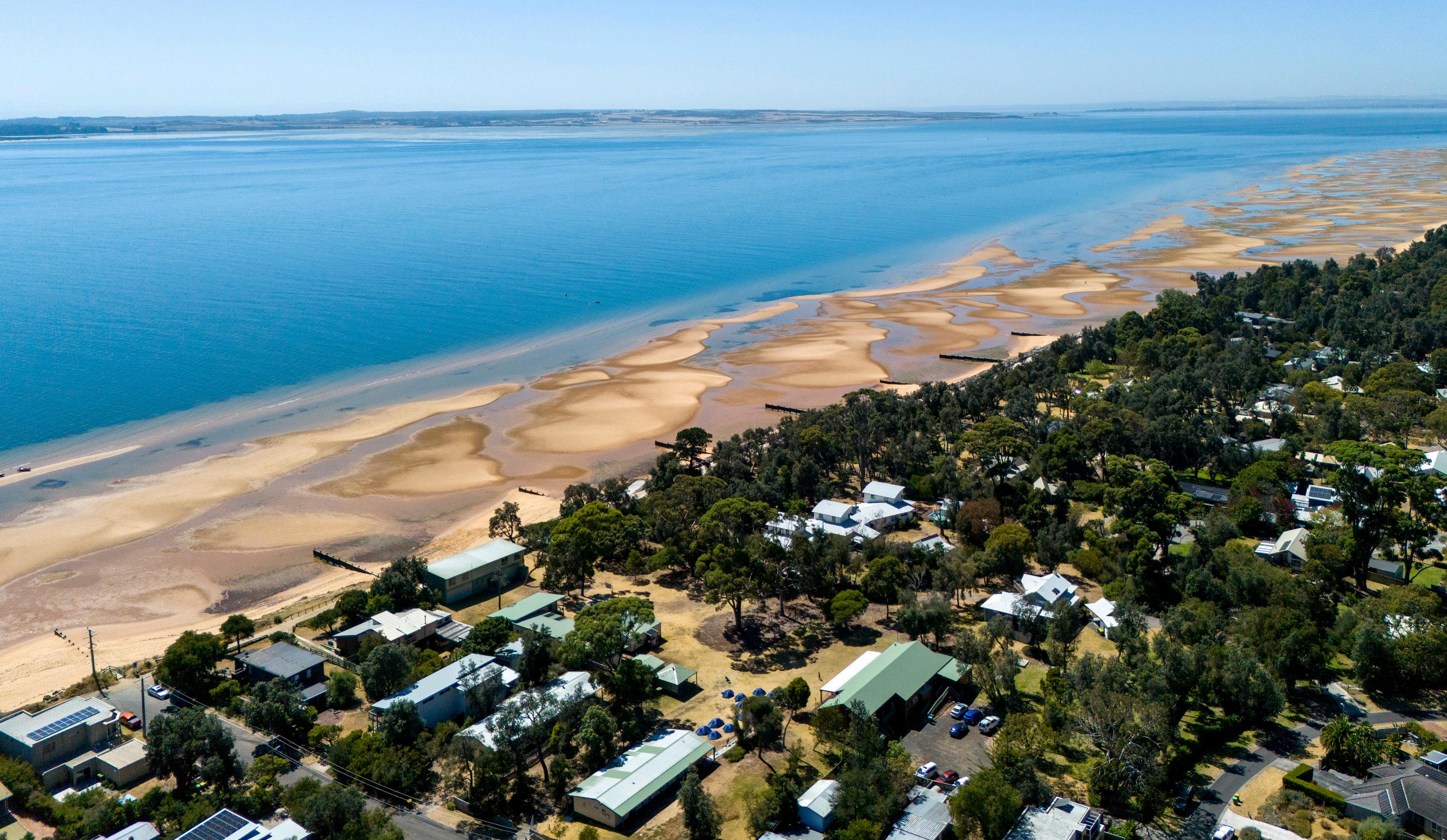
1930
Scotch’s first outdoor education site opens at Elliott Lodge in Healesville.
1955
Scotch’s second outdoor education site opens at Cowes, Phillip Island.
1973
The Scotch College Foundation is established, the first of its kind for independent schools in Australia. The Foundation stewards the philanthropic gifts from the Scotch
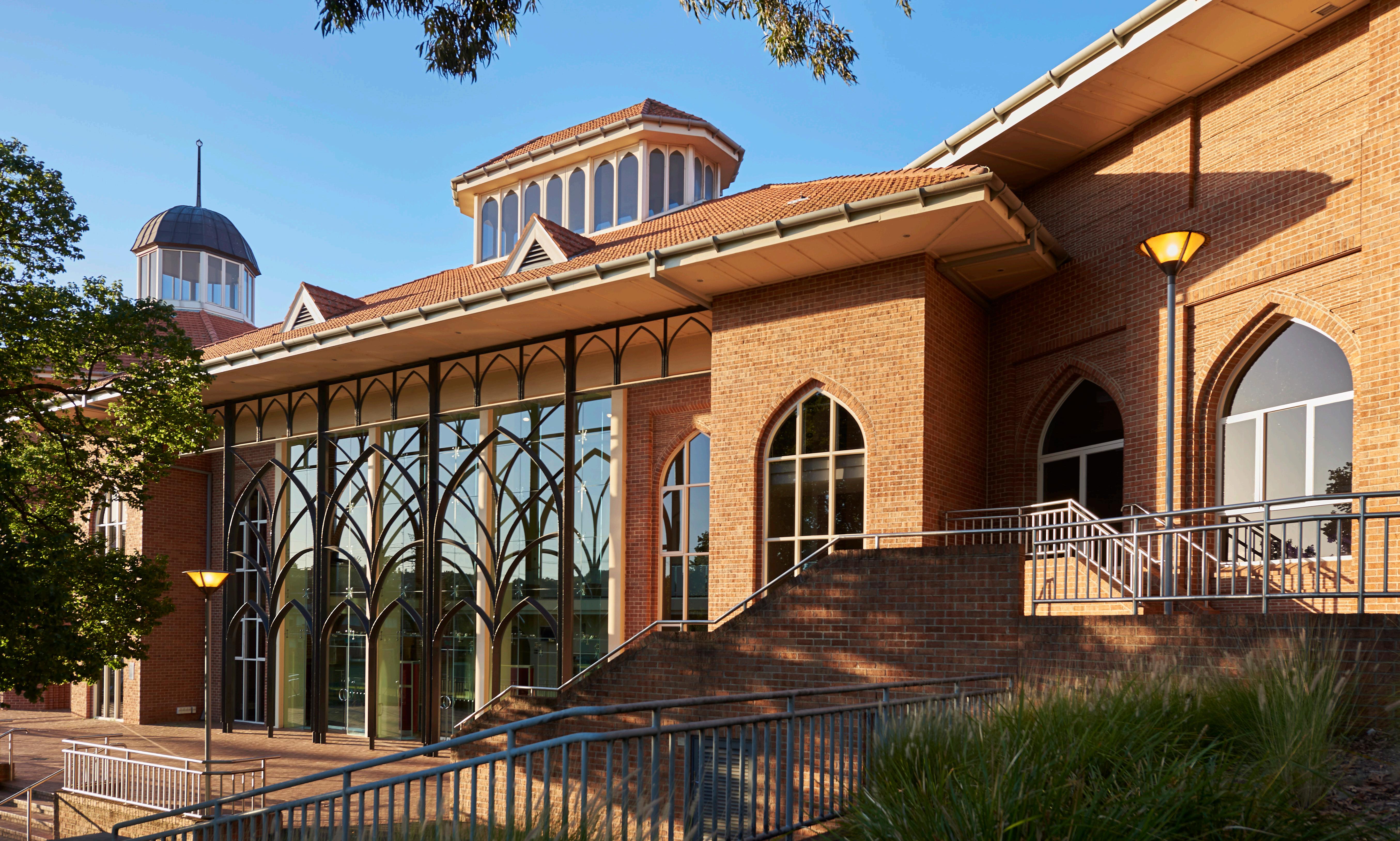
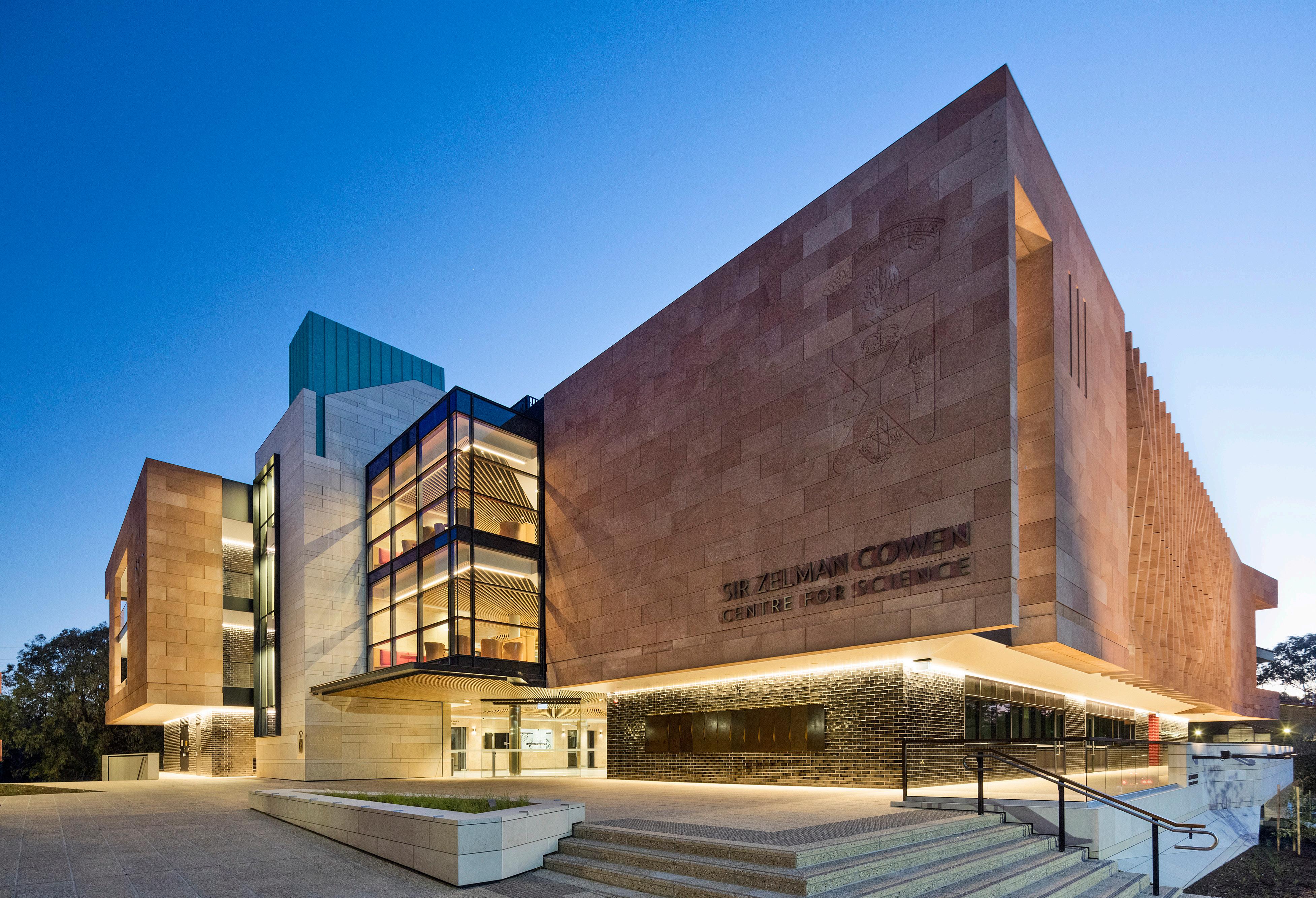
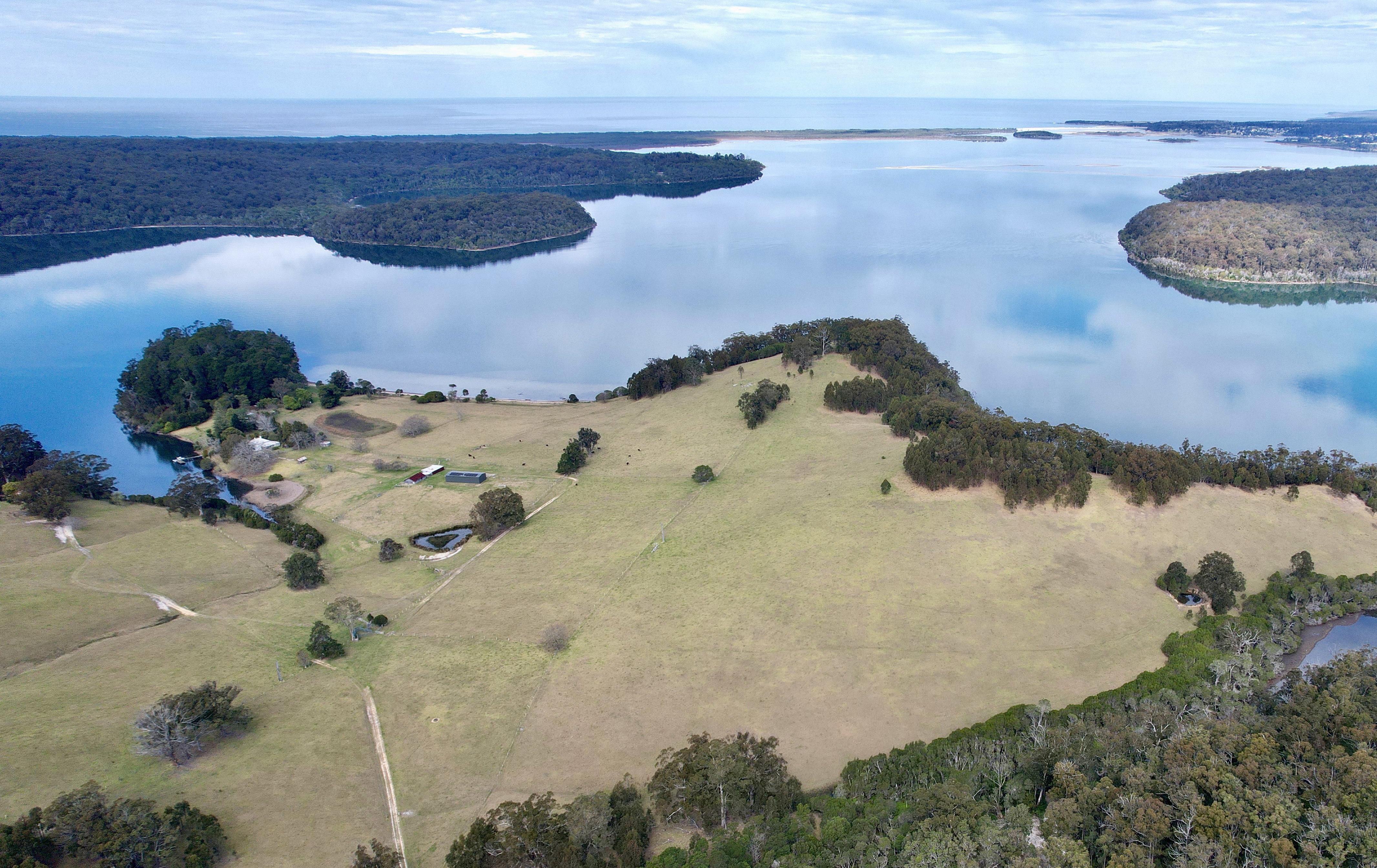
Family to support the development of the school’s built environment and provide scholarships for boys to attend Scotch who otherwise would not have the opportunity.
Opening of the final stage of the James Forbes Academy with School for Music, School for Drama and theatres.
Opening of the Sir Zelman Cowen Centre for Science.
2023
175-acre property purchased at Mallacoota to become the epicentre of Outdoor Education at Scotch.
At Scotch College we consider the health, safety and wellbeing of all children and young people to be our highest priority.
Our Safeguarding Children and Young People Policies underpin a set of related policies and procedures concerning the protection of children and young people, which collectively provide a framework that informs:
• the screening and recruitment of our personnel
• the behaviour of our personnel towards children and young people
• the induction and training of our personnel about safeguarding children and young people
• effective communication with children and young people and their parents
• our responses to the abuse and neglect of children if it occurs, and
• the maintenance of a safeguarding culture in the organisation
Our teaching staff are required to:
• have current registration with the Victorian Institute of Teaching which includes a national criminal history check
• sign an agreement to abide by the Child Safety Code of Conduct
• complete requisite training
• behave professionally and with care towards children and young people
• understand the important responsibility they have to protect children and young people from all forms of abuse, bullying and exploitation either by our personnel or that occurs outside the scope of our operations and services
• create and maintain a child safe culture
Our non-teaching staff and volunteers are required to:
• sign an agreement to abide by the Child Safety Code of Conduct
• complete the requisite training;
• maintain a current Working with Children check
• maintain the highest standards of professional conduct towards children and young people
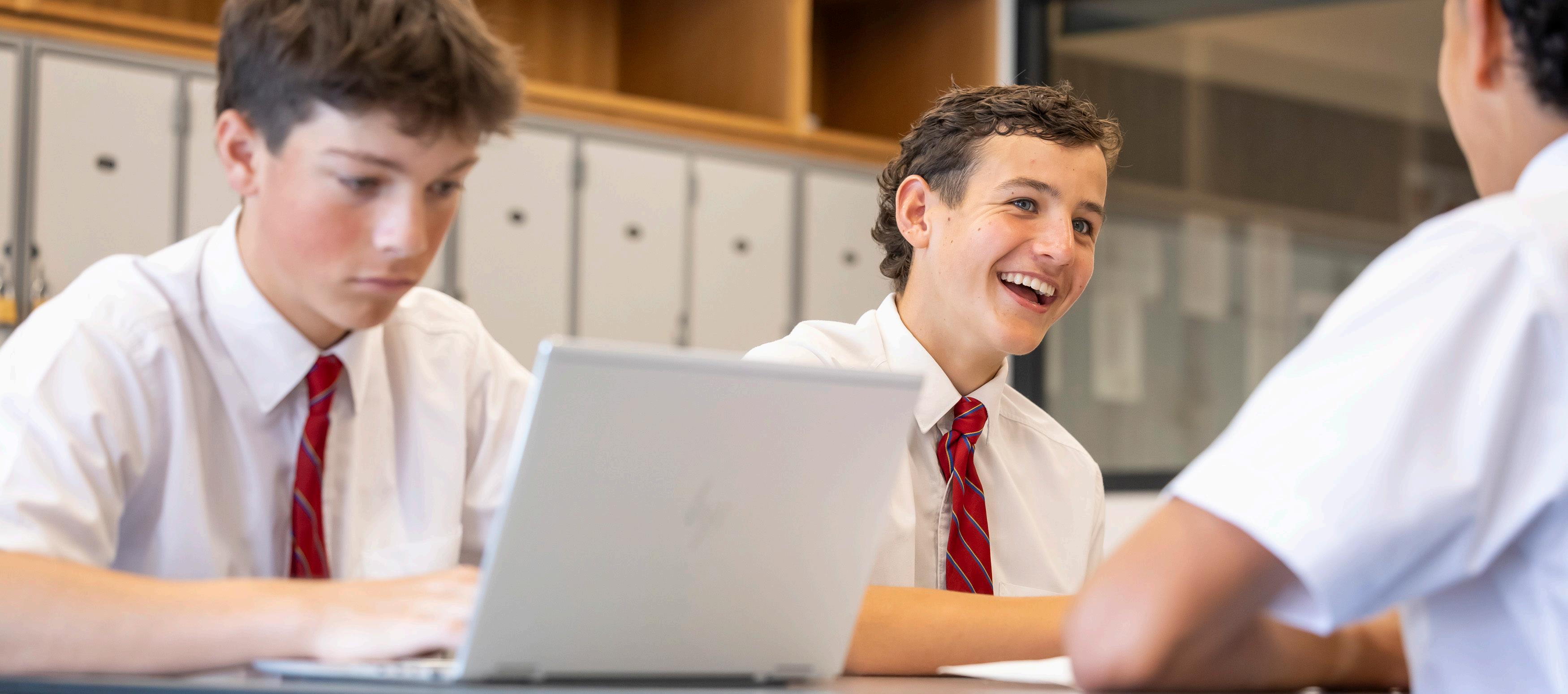
The Vice Principal Senior School and Vice Principal Teaching and Learning are responsible for daily administration of the Senior School. They are assisted in this task by the Director of School Operations, the Dean of Students, the Directors of School (11 & 12, 9 & 10 and 7 & 8), the Director of Teaching and Learning, the Director of Academic Care and the Head of Boarding.
At Scotch the transition for new students is relaxed and enjoyable as they make friends and become fully integrated into the school.
The Form Teacher (Years 7 and 8) and Head of House (Years 9 to 12) has a key role in the orientation process and is responsible for a boy’s overall welfare during day school hours. He or she takes particular care to become familiar with the individual needs of new boys, ensuring that they fit into the school routine with minimum difficulty.
Year 7 students have a special transition program that is designed for their needs. The Coordinator of Transition meets with each new boy and his parents, the year prior to commencing. At this meeting, language selection and arrangements for participation in co- curricular activities such as sport and music are discussed, and a brief overview of the routines and expectations of the School are given. An information evening for parents regarding languages at Scotch is held early in the year prior to the boys entering Year 7.
An Orientation Program for all students commencing Year 7 is then held during Term 4. On this day, students meet their peers, have a tour of the school and are given information to help familiarise themselves with the daily routine of the school. They will also meet some of the
staff members who are involved in the Year 7 Program.
On the day before school commences, Year 7 students attend a ‘New Boys’ Day’. On this day, they meet their Form Teacher, the other students in their form, and are re-introduced to some of the daily routines of the school.
Each Year 7 Form is assigned a group of ‘Peer Support Leaders’. These boys are Year 10 students who have been trained for this specific role, and who have an important role in the orientation process. These leaders meet new boys on their first day at school, show them around the campus and continue to meet with them weekly during Semester 1, helping them to understand how the school operates on a day-to-day basis.
To further assist in the transition process, a one-week camp at Phillip Island is held in Term 1 for each Year 7 Form. This camp is structured to help each boy develop his relationships with his classmates and teachers.
An initial meeting with a new student, his parents and the Director of Year 7 & 8 or the Deputy Director of Year 7 & 8 occurs before school commences. At this meeting, language selection and arrangements for participation in sport and music lessons are discussed.
An initial meeting with a new student, his parents and the Head of House (Years 9 to 12) occurs before school commences. At this meeting, subject selection and arrangements for participation in cocurricular activities such as sport, the services / activities program (Cadets, Pipe Band, etc.) and music lessons are discussed.
On their first day at school, students meet with their Head of House. This person,
who has daily contact with the boys in their care, assists in the orientation of new students and monitors their progress in academic and co-curricular activities throughout the year.
Students who are new to Scotch College will have ideally undertaken testing in literacy and numeracy at Scotch prior to starting school; this will be offered as part of their orientation in Term 3 in the school year prior to commencement. At the start of the academic year all new students will receive an induction with the Director of Year and a tour of the school by Prefects.
Students and their courses of study are organised into horizontal year group levels. Students begin in Year 7 and end with Year 12 (Victorian Certificate of Education).
Boys study English, Mathematics, Science, History, Geography, Music, Drama, Art, Design Technology, Christian Education, Physical Education and two languages from among French, German, Italian and Chinese. A teaching team of three staff is responsible for delivering just over half of the curriculum. The Year 7 Program includes a focus on generic skills, that is, skills that cross subject boundaries and can be seen as ‘skills for life’ as much as skills for school.
Boys study English, Mathematics, Science, History, Geography, Music, Drama, Physical Education, Health Education, Christian Education, Design Technology and Art. Boys are encouraged to continue with both languages from Year 7; however, boys have the option of studying only one language in Year 8. All Year 8 boys attend a camp (Outdoor Learning Program).
Students study English, Mathematics, Science (as trimesters of Physics, Chemistry and Biology), Christian Education, Physical Education, Health Education, History and a Language other than English as compulsory core studies. Students may continue with their Year 8 languages and choose further electives from Art, Commerce, Design and Technology, Latin, Drama, Geography, History and Classics, Coding and Algorithms, Media, Music, Sports Science and Psychology. These electives include some Year 9 & 10 cross age electives. All Year 9 students attend a two-day retreat during Term 2 as part of the transition into Upper School and the House System.
Students study Mathematics, English, History, Science (as trimesters of Physics, Chemistry and Biology), Christian Education, Physical and Health Education as compulsory studies. Students choose electives each semester from: Art, Commerce, Design and Technology, Drama, English, Geography, German, Global Perspectives, History and Classics (including Philosophy and Politics), Languages (Chinese, French, German, Italian) Latin, Music, Sports Science, and specialist Science subjects. Some of which include Year 9 & 10 cross age electives. In addition, students are also able to embark on a limited number of VET subjects off-campus.
Boys begin the Victorian Certificate of Education (VCE) conducted by the Victorian Curriculum and Assessment Authority. Boys at Scotch College are expected to study six subjects (12 semester units) in Year 11 and five subjects (10 semester units) in Year 12. Boys must include: four semester units chosen from English, Literature, English
Language or English as an Additional Language (EAL).
At Year 11 the following subjects are offered: Accounting, Australian and Global Politics, Biology, Chemistry, Product Design and Technology, Drama, Economics, English, English Language, Literature, Environmental Science, French, Chinese, Italian, Latin, Geography, German, History, Information Technology, Legal Studies, Mathematical Methods and General Mathematics (there is the opportunity to take double Mathematics), Media, Music Performance, Physical Education, Physics, Psychology, Philosophy, Religion and Society, Science Olympiad, Studio Arts, Systems Engineering and Visual Communication Design. In Year 11, boys may be permitted to undertake a Unit 3/4 (Year 12) study, provided they have a B average or better, across all their Year 10 studies.
The Year 12 courses are sequences of VCE Unit 3 and 4 studies with the further opportunity of advanced university level study for selected boys. Boys are eligible to apply to a university or other tertiary education institution after the successful completion of their VCE. Boys study five or six sequences of Units 3 and 4. The units offered in Year 11 as Unit 1 and 2 studies are offered in Year 12 as Unit 3 and 4 studies. In addition, Ancient History, Australian History, Revolutions, Further Mathematics, Business Management and Specialist Mathematics are added as Unit 3 and 4 study options.
The Centre for Learning (CFL), situated centrally in the Lithgow Centre is a learning hub comprising a range of student services. It provides a library service and an excellent academic support program. The services work
together to create a vibrant learning environment to support and extend boys’ academic growth across Year 7–12. Teachers also access CFL facilities for curriculum and resource support.
The CFL accommodates a range of learning areas:
• Tutorial area for intensive individual and small group academic work
• Classroom North equipped with computers enabling classes to engage in research, related discussion and project work
• Open flexible spaces equipped with tables and chairs which can be configured in a range of groupings, these spaces can be used for individual or collaborative project or research tasks
• The Reading Lounge is an open relaxed reading environment*
• A Reading and Discussion Room furnished with comfortable couches, this room houses contemporary young adult fiction titles and abuts a wider selection of curated novels. It can be used for structured literature activities or relaxed free choice reading
• Phone free social area for relaxing, reading newspapers and quiet conversations
• Two meeting rooms for teacher use
• Academic Support Service
The academic support teaching team offer boys access to a variety of support options.
• 1:1 or small group support for boys with diagnosed learning needs.
• Opt-in support for all boys, provided by teachers from a range of subject specialisations before school, during lunchtime or after school.
• Co-teaching support within the
classrooms to ensure boys are all able to access and participate in appropriate and interesting learning programs.
Vast amounts of information are available to boys on the internet. Library team members in the CFL assist boys to manage research tasks by teaching students to use authoritative resources such as online encyclopedias, online journals and newspapers and online video collections. Library staff also teach useful strategies to select pertinent information from the web, avoid plagiarism, synthesise information without resorting to simply copying, and correctly reference their sources.
Each year the library staff organise a Best Books for Boys evening for parents and boys in Year 7 and 8. This is done in partnership with the English Department and attracts over 200 participants. The evening caters for students who may need a little incentive and motivation to increase their reading, as well as boys who are already enthusiastic readers. This evening is a great opportunity to experience the reading connection between students, parents and staff. Biannually the Library organises the Scotch College Literature Festival which involves visiting authors, journalists, creative artists, and story tellers. It is a celebration of all things to do with reading, creating stories, and widening reading horizons.
and Communication Technology (ICT) Services
ICT Services provide Scotch College with strategic direction for all areas of ICT, Information Systems Development and Support, Technical Management and Support and advice on the suitability and operability of all types of media equipment, computer equipment, communication networks and mobile devices.
ICT Services Tech Support Desk
Normal hours: 7:30am to 5:00pm Monday to Friday
Contact Details: Email: techsupport@ scotch.vic.edu.au Telephone: 9810 4411
Management System
All boys can use the School’s Learning Management System (canvas). This provides boys with access to curriculum material and learning resources. Access is available from both home and school.
The Scotch College Student Information System (SIS) contains all information relevant to boys and their families including contact details, class and house information, sports activities, medical information and general academic history. The level of access and therefore the information that is available is restricted based on the role and responsibility of the user.
Boys are not permitted to use the computers provided by Scotch College to play games at any time.
Some use of games is provided and therefore allowed in the Boarding School. The decision on the appropriateness and therefore availability of specific games is determined by the Head of Boarding.
Phones are banned for students in Year 7-10; students are not allowed to access their phones, and they are to be kept locked in their lockers.
There is an active program of Debating and Public Speaking for all year levels in the Senior School.
We also offer a variety of music tours and competitions, sport related tours, such as Rowing Camp (summer) and Snowsports (winter) and Cricket and Golf to the UK. We have in the past offered NASA trips and other curricula and co curricula related incursions, excursions, camps, trips and tours.
Over 1000 individual lessons are taught each week by a staff of 23 permanent and 60 visiting music teachers. There are a total of 55 ensembles, and there is a musical performance of some kind in the Music School every week of the year.
The James Forbes Academy for Music, Drama and Communications is a fully equipped Music School comprising eight large teaching areas, two large rehearsal spaces, three classrooms and 25 teaching and practice rooms and includes the 500 seat Ian Roach Concert Hall.
Class Music is taught as a core subject in Years 7 and 8, and as an elective subject thereafter. Class Music in the Junior Secondary School has a strong Kodaly basis, and this philosophy is extended into the individual instrumental teaching. All boys in Years 7 and 8 spend part of their class time using computers for composition and arranging, while at a more senior level computers are used for more advanced composition as well as aural training and arranging.
Boys may take individual tuition in any musical instrument and may hire a school instrument for a nominal fee. Application forms for instrumental lessons can be obtained from the Music School Office.
All boys who learn orchestral instruments become involved in making music in ensembles appropriate to their musical ability level. As boys develop their instrumental skills they are promoted through a logical progression of bands and orchestras within the Senior School, culminating in the Senior Ensembles. These include the Symphony Orchestra, Symphonic Wind Ensemble, Academy Strings, Chamber Orchestra, College Choir, Chamber Choir and Show Band. There are also many smaller ensembles, such as string quartets, piano trios, wind quintets, brass and woodwind ensembles, jazz groups and vocal ensembles. Chamber music plays an important role, and the chamber ensembles have been broadcast within Australia and overseas.
In addition to orchestral and keyboard instruments, Scotch also has three thriving Pipe Bands. These have been very successful in winning their respective classes at state, national and international competitions. The intermediate pipe band (predominantly boys from year 9) travels to Scotland annually to participate in competitions during the Northern summer.
The Music Auxiliary, a parents’ support group, has been prominent in the life of music at Scotch for over half a century, and has purchased many major instruments, including the Steinway Model D concert grand piano and a harpsichord.
Drama at Scotch is divided into two parts. The first is that of timetabled drama classes offered within the curriculum from Years 7 to 12. The second is in the form of the various theatrical productions that are offered to boys as a voluntary extracurricular activity.
Theatrical productions take place regularly in conjunction with other girls’ schools. Each year a production is held for boys in Year 8, another for boys in Years 9 and 10, in addition to the Senior play and musical. The plays vary in style and range from musical comedy to Shakespearean tragedy.
The Scotch Drama Department operates out of the James Forbes Academy. This building includes the Geoffrey McComas Theatre which is a 434-seat drama auditorium. The McComas Theatre includes a proscenium-arch stage equipped with a fly tower, moveable orchestra pit, changing rooms, scenery workshop and associated control areas. Main school musicals and dramas are staged in this theatre while class-based performances are accommodated in one of the three additional purpose-built teaching studios, each equipped with its own lighting, projection and blackout facilities. Scotch owns a large stock of associated theatrical equipment as well as scenery, properties and costume stores.
Boys are encouraged to utilise these world class facilities by learning to participate as performers, technicians and crafts persons in a professional environment. All productions, therefore, are exclusively acted and crewed by students. It is fundamental to all our activities that the talents and potential of boys and girls are foremost in the selection and production of production roles.
The overall aim of the Services and Activities Program is to foster selfreliance, initiative, leadership, service, self-discipline, and community awareness, by teaching a variety of skills and providing a range of challenging experiences. Broadly speaking, these fall into three main categories: sports practice for Years 7 and 8 and Service Learning and activities for students in Years 9 to 12.
To this end, boys at Scotch are involved most Wednesday afternoons. All students in Years 9 to 11 will take part in a camp at the end of Term 3. Each camp program is tailored to the needs of the activity being undertaken, with camps taking place in Melbourne, Victoria or interstate.
Scouts: Recruitment into 1st Hawthorn Troop is at Years 6, 7 or 8. The Scouts follow a program run on the traditional patrol system with older boy as patrol leaders. In addition to the challenge and award scheme, special attention is given to camping and an appreciation of the environment. The annual camp is usually held at the Group’s property (Elliott Lodge) at Healesville. There is also a three-day camp held each year.
Venturers: If a boy wishes to continue as a member of the Scout Group, then he must do this as a Venturer working towards his Queen’s Scout award. Venturers participate in a robust outdoor program throughout the year and some Venturers may assist the Scouts with their camps and hike. Venturers’ meetings occur on Friday evenings.
Cadet training has been conducted at Scotch College since the 1850s and the School is proud of its traditions and standards. These days, the Cadet
program is best described as ‘youth development, in a military context that promotes courage, initiative and teamwork.’ As a unit of the Australian Army Cadets (AAC), we use a national AAC training syllabus that introduces our Year 9s to drill, map reading, patrolling, radio procedure, basic first aid, living in the field and bushcraft.
As well as the weekly program, there is a bivouac at the end of Term 1, and a five-day camp at the end of Term 3. Excellence, teamwork and esprit de corps are encouraged throughout the year by regular inter- platoon competitions, as well as volunteering to march on Anzac Day. Those boys who wish to remain in Cadets after Year 9 will receive formal leadership training at the end of Term 4 so that they can take on leadership positions as Corporals. Opportunities also exist in Year 10 for specialist roles in our Pioneers, Signals or Boating Platoons. Boys may also stay in Cadets in Years 11 and 12, taking on leadership roles as Sergeants, Warrant Officers and Cadet Under Officers. Cadets may also enrol in the Duke of Edinburgh Awards Scheme, as much of their Cadet service is aligned to these awards.
Year 9 Outdoor Expeditions is open to 36 boys. The program is designed to give boys an appreciation of the outdoors and learn the necessary skills of route-based camping. The boys undertake two camps where they usually hike, mountain bike and canoe.
Boys can also undertake the Duke of Edinburgh Award. The Outdoor Expedition program is designed to allow boys to achieve the Bronze level of this award during the year.
Year 9 Adventurers is open to a limited number of boys. The aim is to equip boys
with skills which may be of use to them as well as the wider community. Boys will also trial activities that may be pursued further in the Outdoor Activities Program in Year 10. The boys undertake two camps where a combination of activities and service are undertaken.
Activities include Level 1 first aid, lifesaving skills, fencing, martial art, yoga, mountain-bike riding, orienteering, citybased scavenger hunts, and high ropes courses.
The basic aims of the service are to train boys in Sports First Aid and give them opportunities to practise their skills. In addition, boys can participate in a variety of activities while they are training. An annual camp is held during the year. Boys usually join at Year 9. New boys undertake a Sports First Aid course as part of their first year.
Boys who have acquired their Sports First Aid Certificate may proceed to complete their Sports Trainers Level One Certificate. Once they have achieved this, we encourage them to become a trainer for one of the senior sports teams in the school to assist in injury treatment and prevention. Opportunities may also arise for these boys to obtain some work experience outside of the school.
Boys are required to attend the camp and complete approximately twenty hours of first aid duty during the year to enhance their skills. This can involve duty at school sport and the 24-Hour Hike.
Boys in Year 10 may elect to choose from a variety of different activities designed to give them an appreciation of outdoor pursuits. They are all required to participate in one camp at the end of Term 3. Camp activities may include bushwalking, kayaking, cross country skiing, sea kayaking, sailing, cycling,
mountain bike riding, rock climbing, ninjutsu, surf fitness, scuba diving and fly fishing. In the non-camp terms, boys can undertake training in important life skills such as self-defence and first aid.
This is a challenging program, intended to develop high levels of leadership qualities within a bushwalking context. In Terms 1, 2 and 3 participants receive training in practical outdoor skills and instruction in leadership theory. In addition, the boys will have the opportunity to complete the Silver Duke of Edinburgh Award at Year 10, and if they choose to continue achieve the Gold Award over Years 11 and 12.
The Indigenous Partnership Program (IPP)
Year 9, 10 and 11 boys selected to participate in the Indigenous Partnership Program will have the opportunity to participate in a variety of cultural activities. The service involves visiting guest speakers, excursions to local indigenous organisations, study of significant film resources and participation in leadership and culturalawareness workshops with Indigicate, an Indigenous run educational organisation. Boys also promote Indigenous culture and social justice issues throughout the year, with a particular focus on Reconciliation Week and Close the Gap Day.
This program is centred on service learning and community development. In the first semester, boys participate in preservice learning gaining appropriate skills and qualifications (eg first aid or food handling certificates) as well as planning for and reflecting on their immersion. At the end of Term 3, boys spend four to five days on immersion.
All boys are expected to take part in sport practice at scheduled sessions and play on Saturdays if selected. This takes precedence over other activities. Boys may not compete in other activities which clash with school commitments without the written permission of the Principal or Director of Sport.
The aims of Scotch sport include providing an enjoyable, quality, team oriented and competitive sporting program whereby boys and coaches interact to assist boys’ physical and emotional development within the Associated Public Schools and wider sporting community.
Summer Sports
• Badminton
• Cricket
• Cycling
• Diving
• Futsal
• Golf
• Squash
• Gymnastics
• Lawn Bowls
• Old Scotch Athletics
• Orienteering
• Rowing
• Sailing
• Squash
• Swimming
• Table Tennis
• Tennis
• Touch Football
• Volleyball
Winter Sports
• Basketball
• Cross Country Running
• Fencing
• Football
• Gymnastics
• Hockey
• Rugby
• Snowsports
• Soccer Spring Sports
• Years 7 and 8 Teams Activities
• Athletics
• All year levels Water Polo
The specified attire for the sport must be worn at all training and matches (see section on school uniform).
Procedure in the event of property being lost:
• Boys should make an immediate search in all the places where it may have been left.
• Boys should notify their Head of House/Form teacher.
• Boys should visit the Central Pound for clothing and textbooks
The Bursar, the Administration and Finance Managers and their staff are responsible for the business management of the school. Queries covering the payment of fees, accounts enquiries, insurance and similar matters should be directed to these sources.
The School Health Service is available to all boarding and day boys, in the event of accident or illness. It is staffed from 7:30am to 8:00pm Monday to Friday during school days.
If a day boy becomes ill or sustains a minor injury, he will be supervised until the contacted parent/guardian has collected him from the school. If in an emergency an ambulance has been called and the boy needs to be sent to hospital, every effort is made to contact parents prior to this happening.
During Saturday sport home games, First Aid support is provided by a rotating team of Sport First Aid staff, supervised by a Nurse. If injury occurs to a Boarding student, they are handed over to the Duty Health Centre nurse for treatment. For day boys, contact is made directly with the boy’s parents.
An ongoing process within the school is the collection of medical information. All action plans need to be updated as changes to a boy’s medical condition occur, and on a regular basis.
For each excursion and trip, medical details need to be checked via the online portal, and the parent authorization form returned. Any changes will be updated in the medical system by the Health Services manager. Contact can be made with the Health centre staff via phone 98104220 or email healthcentre@scotch. vic.edu.au.
Parents/guardians are encouraged to request a meeting with Health Centre Staff if their son has specific health requirements.
Located in the Health Centre, our two full time Psychologists are available to see students individually, work with families and/or refer or liaise with external supports and agencies, as required. The psychologists work closely with our pastoral care staff to identify emerging wellbeing issues and proactively address these or to advise and support them in their work with students and families. They also work closely with the CFL team to provide support to students who are experiencing learning challenges or who require extension.
Further, our psychologists are involved with our programs for students, staff and families, to enable education and support for our young people and their families.
Fleming
Forbes
Gilray
Littlejohn
Monash
Morrison
Selby
The teacher primarily responsible for boys’ well-being, development and progress, is their Form Teacher if they are in Years 7 and 8 or their Head of House if they are in Years 9 –12.
The Form Teachers of Years 7 and 8 will lead a group for two years and will be assisted by the Director and the Deputy Director of Year 7 and 8.
The Heads of House will be responsible for a House group of approximately eighty boys for their journey through Years 9 –12 and will be assisted by a group of four House Tutors.
The Form Teachers and Heads of Houses are the point of ‘first contact’ for boys and parents.
The activities of each House are conducted by the elected House Captain and Vice-Captain under the guidance of the Head of House. Interhouse competitions are conducted annually over a wide range of activities, both sporting and cultural.
Dr Rose Humberstone
Peter Karakoussis
Parents may make an appointment to see any of these teachers. In most matters affecting a boy’s course of study parents see the Form Teacher or Heads of House. It is essential that Form Teachers and Heads of House be informed of a boy’s medical history and any pastoral issues. If parents wish to see the Vice Principal, Head of Senior School or Vice Principal, Teaching and Learning they can ring Lithgow Reception.
Homework is work required to be completed outside scheduled class time on which teacher feedback is given. Homework should be considered in three parts:
• Work set by teachers for submission;
• Preparation for assessment, including tests and examinations;
• Something extra the boy chooses to complete/review.
Boys should use their record books and/ or the LMS each night to check work due. They should also look ahead and check reminders for music lessons, physical education classes (pack equipment into the school bag the night before), project and assignment work due soon.
Initially, it is very useful for parents to discuss with their son each day’s Record Book and LMS entries. Ongoing discussions about work progress and subject activities are encouraged. A whiteboard or Study and Activity Timetable or Schedule at home can help support the boy’s routines.
Parents are encouraged to pursue any concerns with homework (e.g. too much, too little, too hard, too easy) with their son’s Form Teacher or Head of House.
The Future Pathways Counsellors offer professional guidance to boys, helping them develop a deeper understanding of themselves, the world of work, and their options for courses and careers. This involves assistance in selecting subjects, tertiary courses, and other post-school pathways. Our approach is personalised, tailored to each student, ensuring that they are well-prepared for a dynamic future.
Our program emphasises developing an awareness of opportunities, acquiring transferable skills, and fostering a global perspective, to facilitate a successful transition beyond Scotch College. To support this journey, students engage in a variety of activities:
• Individual counselling sessions
• Personal branding and guest speaker workshops
• An integrated pastoral curriculum
• Aptitude testing
• Information sessions
• Work experience placements
• Assistance with applications for domestic and international opportunities
Course and careers resources are readily available via our website and at the Future Pathways Hub, where the boys can explore a wealth of information about both local and global opportunities. Students are empowered to make informed decisions and embark confidently on their chosen paths, equipped with the skills and knowledge they need for future success.
After considering feedback from Tutor Groups and Form Groups in Years 7 to 12, the Boys’ Voice Committee agreed upon the following expectations that boys have of themselves and their teachers:
Respect for self - What values do I set myself?
• To be honest, kind and caring
• To show care for myself and to be responsible
• To try my best, work hard and be positive
Respect for others - What can we reasonably expect of ourselves?
• To respect and celebrate others’ experiences, needs, challenges and unique qualities
• To be friendly and helpful
• To respect our learning environment
Respect for teachers - What can we reasonably expect of our teachers?
• They are caring
• They are passionate about what they teach and are organised
• They create an environment which allows boys to actively learn
• They are encouraging
• They know the boys in their classes
What teachers should expect of me?
• I try my best and be attentive I am organised I am polite
• I contribute to the learning environment I am honest
Respect for the environment - How do we respect our environment?
• We respect our environment, so it can be enjoyed by all We keep our school clean and litter free
• We use equipment properly
• We respect other students’ property
Respect for learning - How can I make a positive contribution to the learning experience of others?
• I allow others to work, contribute and engage in their classes, I respect different ways of learning, I am a good classmate
• I help others and I am supportive.
• It is the responsibility of parent/ guardians to ensure that their son attends during the school term.
• During school hours a boy may not leave the school grounds without an email from parent/guardian notifying his Head of House/Form Teacher.
• A boy arriving late to school must immediately sign in at the Middle School office (Year 7,8) or Lithgow Reception.
• Boys who undertake sport, music, duties or service, such as membership of teams, Cadets, or the Service-Learning Program, must attend all the activities, some of which occur during nonteaching holiday time, unless they have previously obtained a leave of absence from the relevant Head of School. Leave will only be given for reasons of health or on other exceptional grounds upon written application by parents.
• The school cannot grant permission for a boy to leave school earlier then the end of the term or start later then the beginning of term. Parents are asked not to take holidays during Term time.
• Notification of absence should be made as follows:
• Written notification of extended periods of absence from parents or guardians must be presented well in advance to the Vice Principal, Head of Senior School.
• Boys returning to school after a short absence must have parents email the Head of House/Form Teacher, stating the cause of the absence.
• In the event of a boy being absent for illness parents should ring the absence voice-mail system (9810 4488) and email the boy’s Head of House/Form Teacher Or send an
email to both Middle School Office and/or Lithgow Reception and the Head of House/Form tutor.
• When medical, dental or similar appointments are made in school hours, the Form teacher OR Head of House must be notified by parents before the day on which the appointment occurs.
• Boys who are ill must attend the Health Centre.
• A boy who has not been at school on a day cannot take part in competitive sport on that day or sit a SAC (Unit 3/4 assessment task).
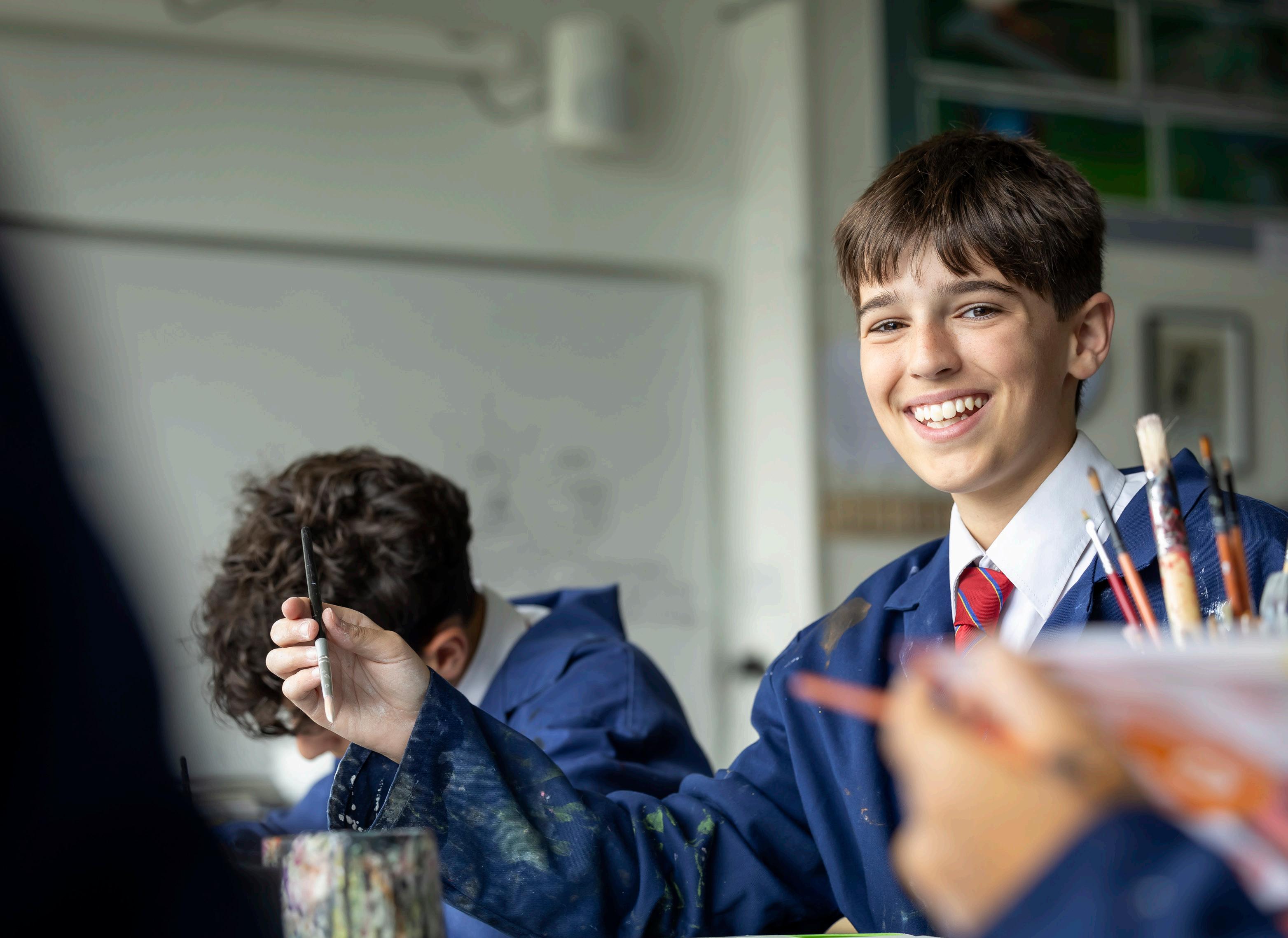
Parents and students should ensure that all items of clothing are properly marked. The Scotch College website has information about the operation of the Scotch Shop located at 4 Morrison Street. All new items of uniform (both academic and sports) can be purchased online and in-store during the published opening hours. Second-hand items of clothing (Senior School only) can also be purchased at the Scotch Shop. Guidelines and price lists for academic and sports uniforms are detailed on the website.
Uniform for a boy going home after sports training is the appropriate school uniform of the day or sports clothing covered by a school tracksuit. Boys being picked up and taken home by car may wear tracksuits over their sports clothes with either track shoes or school shoes.
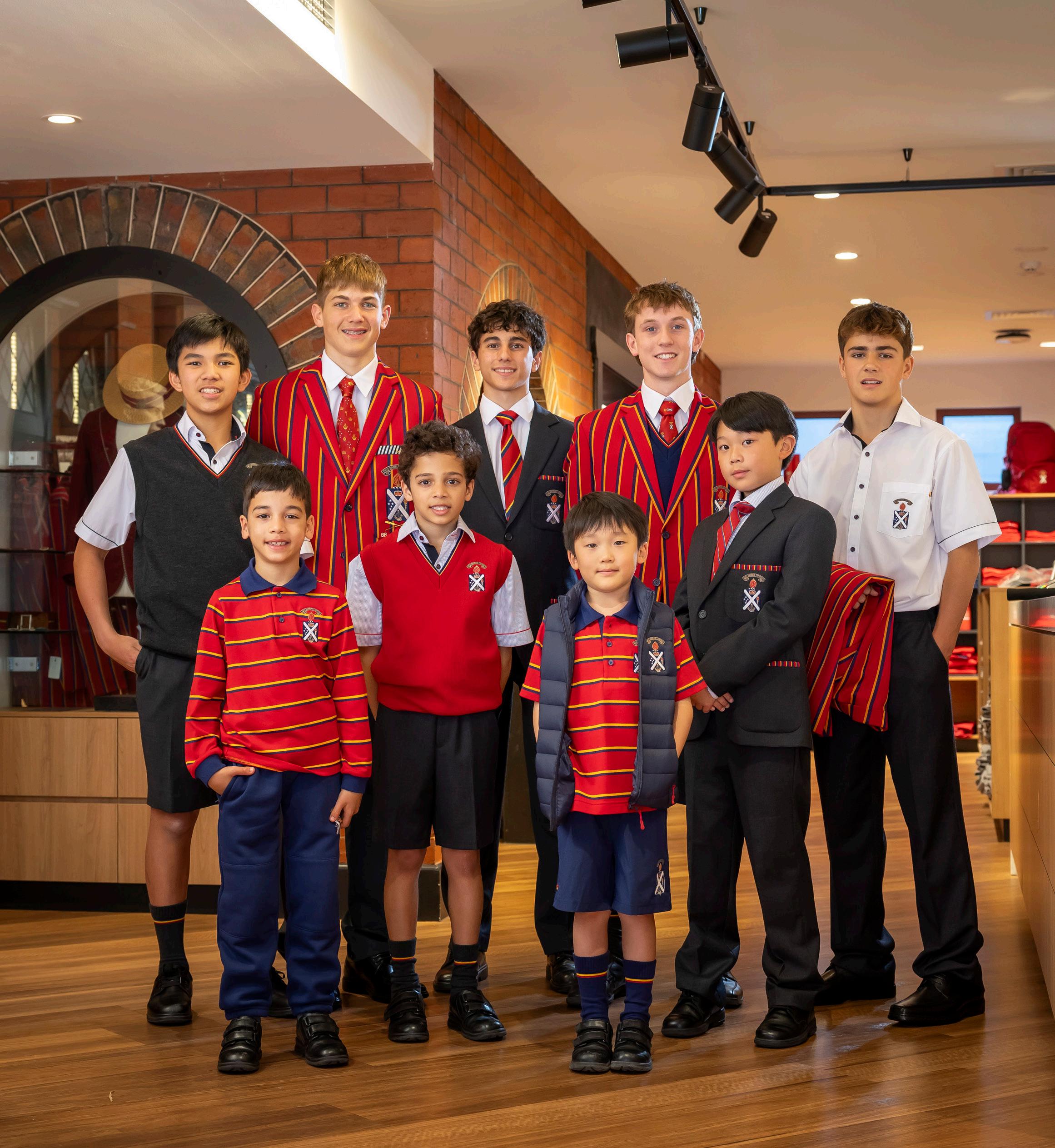
Scotch College requires each boy to wear appropriate clothing for their sport. The official Scotch College sports clothing must be worn at training and games. The Scotch College Sports Jacket and Track Pants are the official Scotch College outer garments which boys are encouraged to wear to and from sporting fixtures and to home after sports training sessions.
The Scotch College Sports Hoodie may be worn with the sports uniform when boys attend fixtures.
Year 7-10 boys are expected to wear the Sports Polo and Sport Shorts to PE practical classes.
Scotch College Racers or Jammers must be worn to Swimming classes.
A House Polo and Sports Shorts must be worn to all House sporting events.
All boys are encouraged to wear the Scotch College Sports Cap for outdoor training and matches, particularly during the summer and spring season.
The Scotch College Track Pants, Sports Jacket, Sports Cap, Sports Polo and Sports Shorts should be worn on all tours. The TIC of the trip should designate when these are worn on the trip. E.g. Any travel to and from the airport would require the boys to wear the Sports Tour uniform.
• Hair must be kept short enough to be neat. As a guide, hair should be above the collar and should not fall over the eyes. Hair should not be coloured. Boys must be clean shaven. Jewellery is not to be worn.
• Shirts when worn with the tie must be buttoned at the neck.
• The school tie must be tied in such a way that the knot covers the button at the neck and is neither too big nor too small.
• Shoes must be black leather, laced and have plain tops. Shoes should be kept clean
• Boarders have permission to wear casual clothes at the Boarding School when not attending classes and on Saturdays and Sundays. They may wear casual clothes down to the Senior School after 5:00pm on normal school days, and on Saturdays and Sundays.
The dates of the beginning and end of each term and of all long weekends are published during the preceding year on the Scotch website. The Record Book, provided to each student, also contains many important event dates. In addition, the Torch newsletter, a weekly publication emailed to parents, the school website and My Scotch Parent Portal are updated regularly throughout the year with key
Boys are encouraged to walk, ride bikes or scooter to school. When they do so, we ask that they do so safely, including wearing a helmet on bikes and scooters, not taking passengers, keeping to a safe speed, being aware of surroundings (not wearing headphones), and dismounting in areas of the school where bikes and scooters are not allowed.
Many students choose to catch public transport to Scotch, with Kooyong Railway Station and tram stops along Glenferrie Road and Riversdale Road located a short distance from the school.
Parents are requested to be mindful of the safety of students and families when they are driving in to Scotch to drop off or pick up their sons. Please do not stop in the middle of the road but rather pull over to a stop and drop spot or a parking bay. Be mindful of the pedestrian crossing on Morrison Street and stop there for pedestrians.
dates and important information about upcoming events.
Access to the My Scotch Parent Portal requires a Username and a Password. If you need to obtain your username and password, please contact ICT Techsupport on 9810 4411 during office hours or email techsupport@scotch.vic.edu.au.

